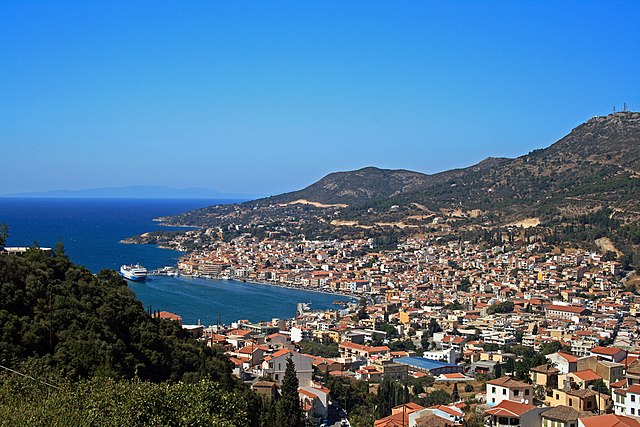Pythagoras of Samos was an ancient Ionian Greek philosopher, polymath and the eponymous founder of Pythagoreanism. His political and religious teachings were well known in Magna Graecia and influenced the philosophies of Plato, Aristotle, and, through them, the West in general. Knowledge of his life is clouded by legend; modern scholars disagree regarding Pythagoras's education and influences, but they do agree that, around 530 BC, he travelled to Croton in southern Italy, where he founded a school in which initiates were sworn to secrecy and lived a communal, ascetic lifestyle. This lifestyle entailed a number of dietary prohibitions, traditionally said to have included aspects of vegetarianism.
Bust of Pythagoras of Samos in the Capitoline Museums, Rome
Fictionalized portrait of Pythagoras from a 17th-century engraving
Bust of Pythagoras in the Vatican Museums, Vatican City, showing him as a "tired-looking older man"
Bronze bust of a philosopher wearing a tainia from Villa of the Papyri, Herculaneum, possibly a fictional bust of Pythagoras
Samos is a Greek island in the eastern Aegean Sea, south of Chios, north of Patmos and the Dodecanese archipelago, and off the coast of western Turkey, from which it is separated by the 1.6-kilometre-wide (1.0 mi) Mycale Strait. It is also a separate regional unit of the North Aegean region.
Samos (town), capital of Samos
View of Poseidonio.
Kouros of Samos, the largest surviving Kouros in Greece, showing Egyptian influence (Archaeological Museum of Samos)
Heraion of Samos








